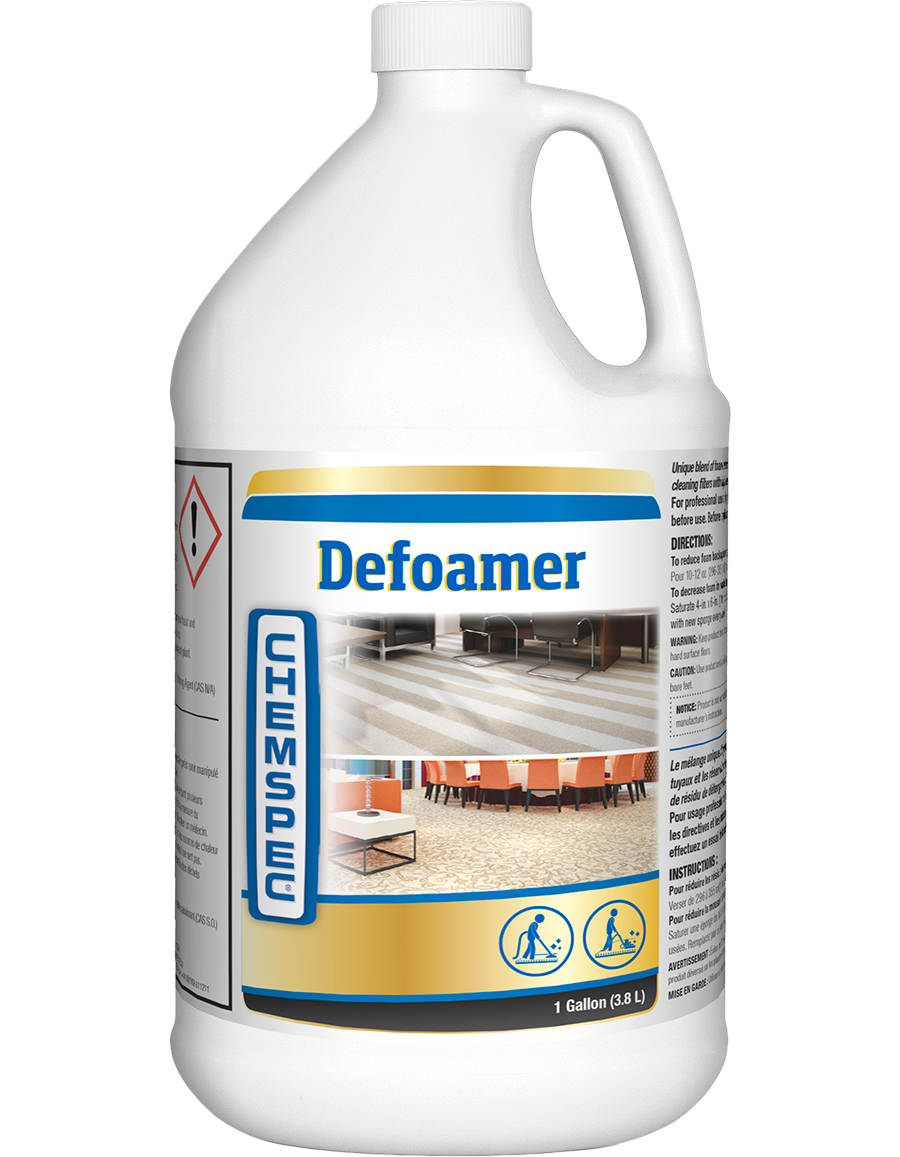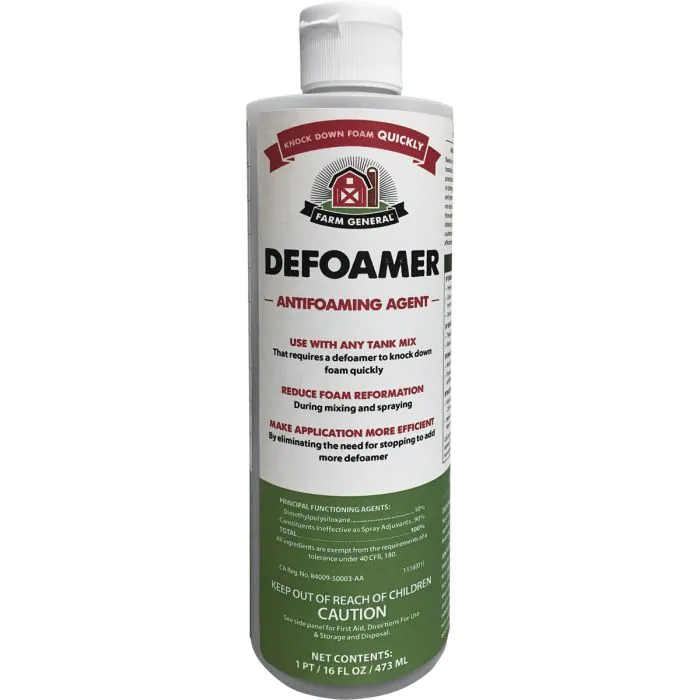Discover the Top Factors You Need a Chemical Defoamer for Effective Foam Control
In numerous industrial applications, effective foam control is critical for keeping functional efficiency and product top quality. Chemical defoamers function as crucial agents that minimize foam development, therefore enhancing processes in fields such as food manufacturing, pharmaceuticals, and wastewater therapy. Their capability to decrease surface tension not just promotes quicker foam collapse but additionally results in considerable expense savings and enhanced resource administration. As we check out the diverse benefits of chemical defoamers, it ends up being evident that their role extends beyond simple foam decrease, influencing general efficiency in ways that might not be immediately obvious.
Enhanced Operational Performance
The visibility of foam can impede production by obstructing devices, reducing capacity, and complicating procedure control. By reducing surface tension, they facilitate the fast collapse of foam, permitting for smoother operation and decreasing downtime.
In sectors such as food and beverage, pharmaceuticals, and wastewater treatment, the application of defoamers improves procedure stability and item quality. For example, in fermentation procedures, regulating foam generation is important for optimizing return and efficiency. In addition, the usage of defoamers can lead to more reliable blending and aeration, leading to boosted reaction times and overall performance.
Additionally, when foam is successfully managed, it decreases the danger of overflow and contamination, ensuring compliance with safety and security and top quality standards. This not just enhances procedures however additionally permits much better source utilization. Ultimately, the integration of chemical defoamers into commercial procedures promotes a much more effective workflow, optimizing output while preserving high-quality standards. Hence, their role in improving functional performance can not be overstated.
Price Cost Savings and Resource Administration

In lots of applications, extreme foam can create overuse of chemicals, leading to unneeded expenditures. By regulating foam degrees, organizations can maximize their chemical input, therefore decreasing functional prices.
In addition, lowered foam in handling systems can improve the general throughput, permitting centers to boost production capacity without incurring extra costs - Chemical Defoamer. This efficient source management translates right into substantial financial advantages, allowing organizations to allot funds towards technology or expansion. In recap, the assimilation of chemical defoamers into industrial procedures cultivates a more resource-efficient and affordable environment, inevitably sustaining organizational development and sustainability
Improved Product High Quality

The usage of chemical defoamers plays a critical function in enhancing item top quality throughout different industries. Too much foam can result in irregular product solutions, affecting the final features of products such as paints, coatings, food, and drugs. By minimizing foam formation, chemical defoamers facilitate smoother manufacturing procedures, making sure that formulations stay consistent and satisfy specific quality criteria.
In the food and beverage market, for circumstances, the existence of foam can impact the quality and taste of items, inevitably influencing customer fulfillment. Chemical defoamers assist keep the desired structure and look, thereby enhancing the general quality of the final item. In the manufacturing of coatings and paints, foam can lead to flaws such as pinholes and poor adhesion, weakening the product's efficiency.
Furthermore, the use of defoamers can boost the effectiveness of procedures like fermentation and emulsification, which are critical for achieving preferred product features. By streamlining production and making check it out sure constant top quality, chemical defoamers not just boost the end product but likewise add to a favorable brand name track record. Hence, investing in effective foam control services is vital for any type of service intending to deliver top quality products regularly.
Devices Protection and Longevity
Lessening foam manufacturing is essential for securing devices and ensuring its long life in numerous industrial applications. Excessive foam can lead to a series of functional concerns, consisting of devices damages, boosted upkeep expenses, and unplanned downtime. When foam accumulates, it can cause overflow, bring about spills that compromise the stability of machinery and surrounding locations.
Additionally, foam can block sensors and pumps, which can prevent performance and effectiveness. In severe cases, it can result in the breakdown of components, demanding costly repair services or substitutes. By making use of a chemical defoamer, business can successfully alleviate foam formation, therefore safeguarding their tools from the damaging effects of foam-related concerns.
In enhancement to protecting against damages, efficient foam control can dramatically enhance the operational lifespan of machinery. With minimized deterioration, equipment can keep peak performance degrees for an extended duration, translating to reduced total operational prices. Executing a defoamer not just makes sure functional efficiency yet also contributes to a more lasting company model by extending the lifecycle of important properties. Investing in a top quality chemical defoamer is a proactive method for protecting devices and cultivating longevity in commercial settings.
Flexibility Throughout Industries
Chemical defoamers play a critical role in numerous sectors, properly attending to foam-related challenges across diverse applications. Their adaptability appears in sectors such as food and beverage, pharmaceuticals, and wastewater therapy, where foam can hamper procedures and reduce performance. In the food industry, defoamers make sure smooth manufacturing by stopping foam development throughout blending, fermentation, and bottling, consequently maintaining product high quality and consistency.

Additionally, in wastewater treatment facilities, chemical defoamers are utilized to regulate foam during the oygenation process, advertising optimum microbial task and boosting the general treatment performance. Their capacity to function properly in high-temperature and high-shear settings further highlights their adaptability.
Final Thought
In verdict, the usage of chemical defoamers is imperative for efficient foam control throughout numerous markets. Their capacity to enhance operational performance, create significant check this site out expense financial savings, enhance item top quality, and protect equipment highlights their essential role in industrial processes. The versatility read here of defoamers allows for widespread application in food production, pharmaceuticals, and wastewater treatment, ultimately adding to lasting development and the upkeep of high functional criteria. The assimilation of defoamers is essential for optimizing overall performance.
Chemical defoamers offer as crucial representatives that minimize foam development, therefore boosting procedures in industries such as food production, pharmaceuticals, and wastewater therapy. As we check out the diverse benefits of chemical defoamers, it comes to be evident that their duty prolongs beyond mere foam decrease, influencing general productivity in ways that might not be right away obvious.
By reducing foam development, chemical defoamers assist in smoother production processes, making certain that formulas remain consistent and satisfy given quality criteria.
By using a chemical defoamer, companies can properly alleviate foam formation, hence guarding their tools from the harmful effects of foam-related problems.
In conclusion, the application of chemical defoamers is crucial for efficient foam control throughout different sectors.